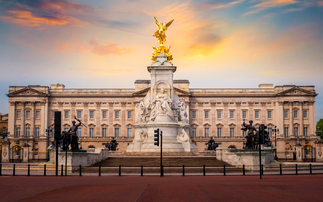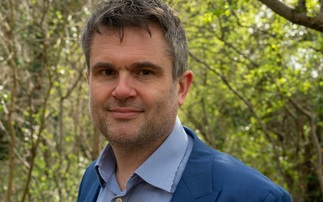Paris will highlight how businesses need focus on the long-term transition to a low carbon economy, says Green Party leader Natalie Bennett
Green Party leader Natalie Bennett is calling on businesses to look beyond the Paris Summit and consider their long-term role in the low-carbon economy the UN meeting is aiming to facilitate.
Despite mounting confidence an agreement will be reached later this year, Bennett is keen to stress that the talks, important as they are, are not an end in themselves. Speaking to BusinessGreen, the Green Party leader argues business leaders need to "not only engage with the Paris talks, but also engage with the broader thinking on what does the community look like, what does the economy look like, in 20 or 20 years' time?"
Throughout the recent election campaign the Green Party was often criticised for taking 'anti-business' positions. But Bennett is keen to point to a growing body of evidence that suggests addressing climate change does not have to come at the expense of economic success and prosperity. For example, earlier this month a study from the Grantham Institute suggested countries would financially benefit from almost all actions to tackle climate change. Economic gains include those from improved air quality, increased energy efficiency, and cross-sector benefits from clean technology innovation - areas Bennett describes as "exciting" new business opportunities.
The Grantham Institute study came hot on the heels of a New Climate Economy report that sets out 10 actions to deliver the vast majority of emissions cuts needed to limit warming to two degrees. Climate Secretary Amber Rudd said the report shows growth, creating jobs and tackling climate change can go hand-in-hand, and that "action to protect our planet does not have to come at the expense of prosperity".
However, Bennett accuses the government of losing any notion the economy and the environment are linked. "We've seen this government entirely decouple any sense that economic policy could be related to environmental policy," she says. "That means from a business perspective we're utterly missing out on huge opportunities."
In particular, she highlights the circular economy as one area where the government has comprehensively failed to deliver. "We need to be sending a signal to businesses that says the circular economy has to be the minimum starting point," she says.
A circular economy - where resources and materials are reused as much as possible - could bring huge economic gains. The Ellen MacArthur foundation claims adopting a circular model could deliver €1.8trn net economic benefit for Europe, €900bn more than if the EU continued on its "business-as-usual" path to 2030.
The concept has been a key area of focus for the EU. Earlier this month, the European Parliament backed a Circular Economy report which calls for ambitious new recycling targets for 2030, despite UK opposition.
Alongside better waste and recycling practices, Bennett also wants to see more focus paid to the durability of goods. She recalls the dismay she felt recently at having to replace a seven-year-old fridge: "People kept telling me 'oh that's just how long a fridge lasts'," she says. "That's just horrifying... We need to really start creating the frameworks and pushing business to make things last longer."
Bennett hopes Paris can provide a launch pad for these wider discussions about the type of economic and business models we want to see evolve over the next decade. But she also fears any agreement won't go far enough. "I think the key thing is, whatever we get [at Paris] isn't going to be good enough," she says. "So what we've got to do is get the best possible deal we can, and then start from the next day trying to make it better."
How does Bennett propose we maintain the momentum for change in the months after Paris? "Obviously we need to be pushing for legislative change," she say. "But we also need to be doing a lot of work in terms of creating community pressure and customer pressure."
To that end, Bennett is planning to mobilise an army of Green Party supporters to raise awareness both of the Paris Summit and the wider decarbonisation agenda. The plan is to capitalise on the "real upsurge" of activism following May's general election with a wave of regional and local party meetings in the run-up to the summit. Bennett hopes this will spawn a community movement that will continue to prosper long after Paris ends.
The strategy was inspired by SNP's success after the Scottish referendum. "You saw the level of political engagement people got, and that really started at that grass roots level of meetings in town halls, meetings in village halls," she says. "That's really going to be the core of Green Party work is focus on starting at that local level."
At the Summit itself, the Greens will be present and will be looking to ask the "tough questions", Bennett says, arguing the meeting offers an all too rare opportunity to put climate change at the top of the political agenda.
"We have a government that sadly is very resistant to taking environmental issues seriously," she reflects. "But it's going to have to be on their agenda - they won't be able to avoid talking about it. And they're going to be exposed. That's one of the key things from a British perspective is that it really is going to expose this government to scrutiny on issues that they have sidestepped."
And it's not just government that will get a share of the spotlight in Paris. Business engagement in this year's talks is at an all-time high, with growing numbers of firms voicing their support for the UN's goals. In a recent editorial for BusinessGreen, UN climate chief Christiana Figueres said business engagement would be crucial to the success of any deal reached in Paris later this year.
The summit will give green business a boost because it's going to "focus the mind" on the potential of the low carbon sector, predicts Bennett. In particular, clean energy start-ups could benefit hugely from the excitement created by the summit. For small businesses with a great idea, the "door of the investors is going to possibly be a lot easier to push open", she says.
And if Bennett has a message for COP21's negotiators? "It's not economy or the environment," she says. "We can and must fix both together." It's a message that's just as relevant for the business community as for the politicians preparing to head to the French capital.
This article is part of BusinessGreen's Road to Paris hub, hosted in association with PwC.









